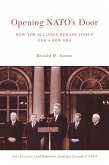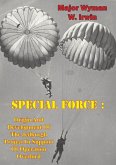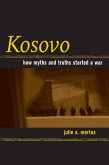The narrative begins with an exploration of the historical and political context leading up to the conflict in Kosovo, including the breakdown of relations between the Yugoslav government and the Kosovar Albanian population. The book then delves into the strategic objectives and political decision-making processes within NATO that led to the launch of Operation Allied Force.
Each chapter methodically covers different aspects of the operation. This includes a detailed account of the air campaign's planning and execution, the selection of military targets, the use of advanced technology and weaponry, and the coordination among various NATO member states.
The book also critically examines the humanitarian and legal dimensions of the intervention, analyzing the impact of military actions on civilian populations, the refugee crisis that ensued, and the role of international organizations such as the United Nations. It explores the debates surrounding the legitimacy and legality of the operation under international law.
"Operation Allied Force" goes further to assess the aftermath and long-term effects of the intervention on the region, including the eventual path to peace and stability in Kosovo, and the broader implications for international military interventions and NATO's role in the post-Cold War world.
This comprehensive and detailed work serves as an essential resource for students and scholars of international relations, military history, and European studies. It offers a nuanced and thorough understanding of a complex and pivotal event in modern international affairs.
Dieser Download kann aus rechtlichen Gründen nur mit Rechnungsadresse in A, B, CY, CZ, D, DK, EW, E, FIN, F, GR, H, IRL, I, LT, L, LR, M, NL, PL, P, R, S, SLO, SK ausgeliefert werden.









